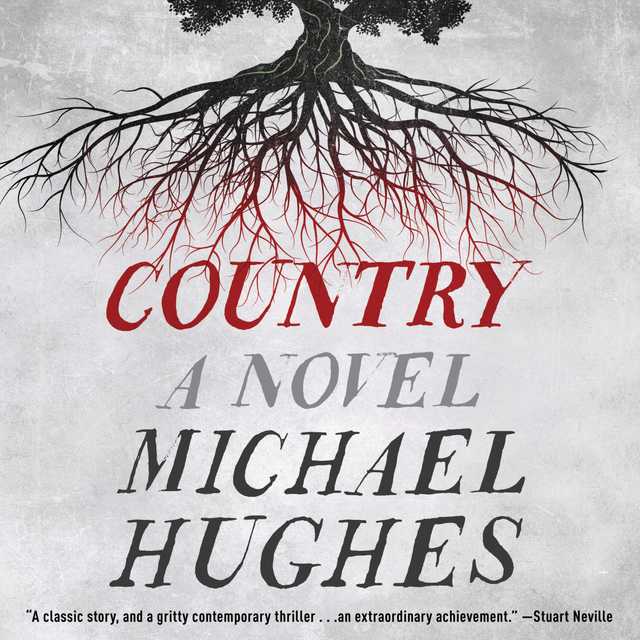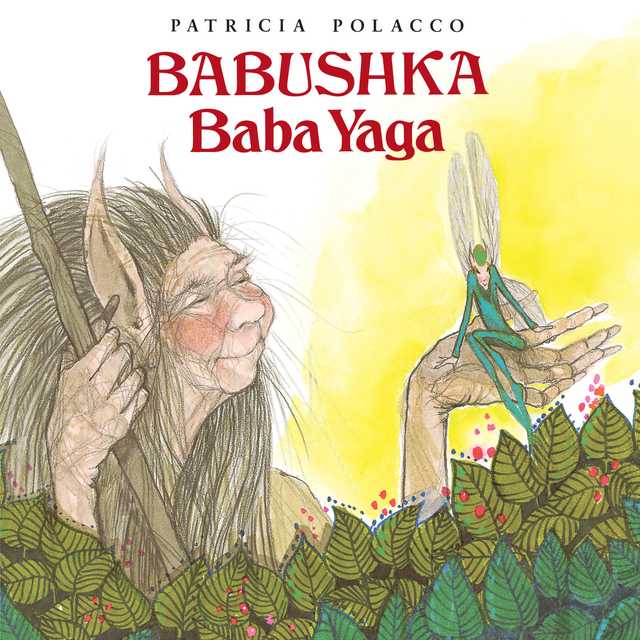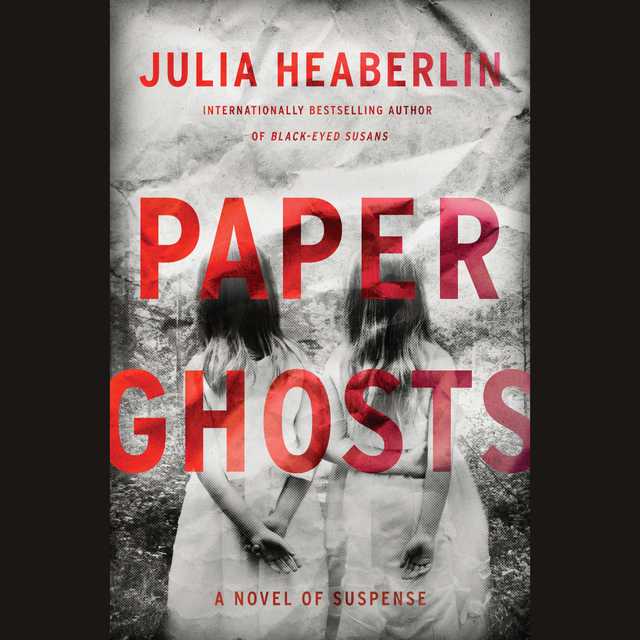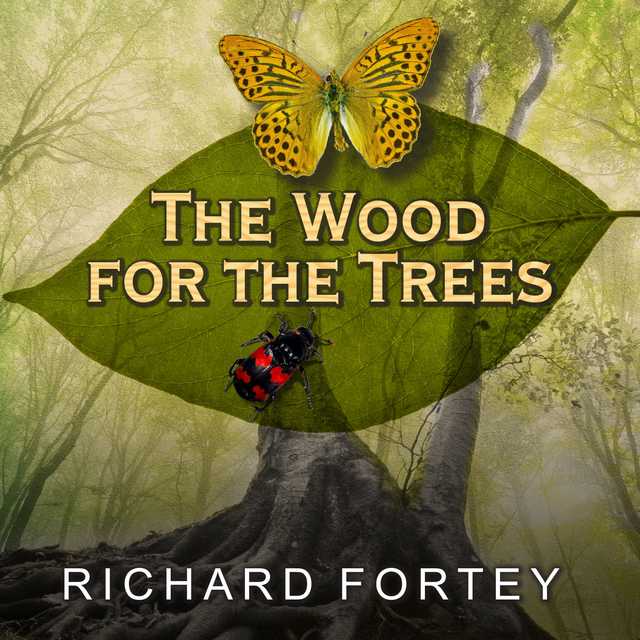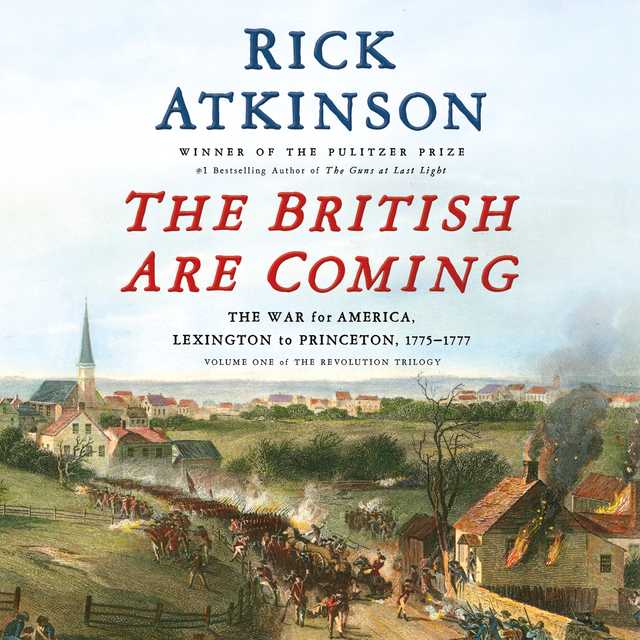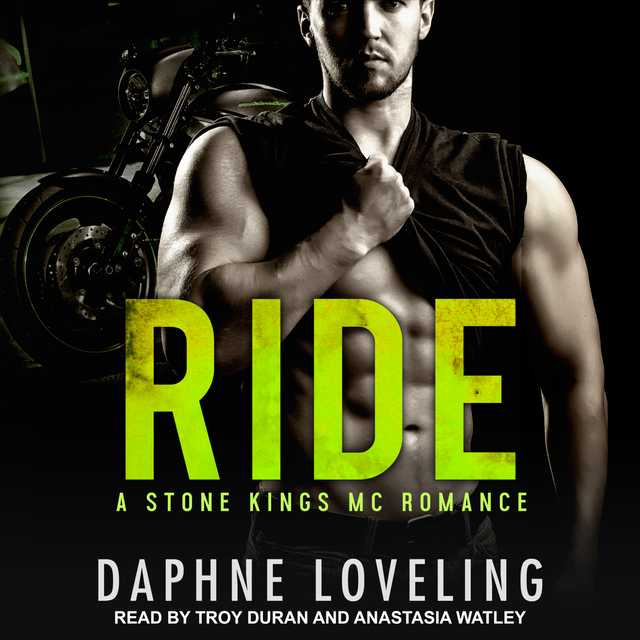Country Audiobook Summary
Published to ravishing acclaim in the UK, a fierce and suspenseful reimagining of Homer’s Iliad set in mid-1990s Northern Ireland–a heart pounding tale of honor and revenge that “explodes with verbal invention, rapid juxtaposition, brutality and fun” (Times Literary Supplement).
Northern Ireland, 1996.
After twenty-five years of vicious conflict, the IRA and the British have agreed to an uneasy ceasefire as a first step towards lasting peace. But, faced with the prospect that decades of savage violence and loss have led only to smiles and handshakes, those on the ground in the border country question whether it really is time to pull back–or quite the opposite.
When an IRA man’s wife turns informer, he and his brother gather their comrades for an assault on the local army base. But old grudges boil over, and the squad’s feared sniper, Achill, refuses to risk his life to defend another man’s pride. As the gang plots without him, the British SAS are sent to crush the rogue terror cell before it can wreck the fragile truce and drag the region back to the darkest days of the Troubles. Meanwhile, Achill’s young protege grabs his chance to join the fray in his place…
Inspired by the oldest war story of them all, Michael Hughes’s virtuoso novel explores the brutal glory of armed conflict, the cost of Ireland’s most uncivil war, and the bitter tragedy of those on both sides who offer their lives to defend the dream of country.
Other Top Audiobooks
Country Audiobook Narrator
Michael Hughes is the narrator of Country audiobook that was written by Michael Hughes
Michael Hughes grew up in a small town in Northern Ireland. A graduate of Oxford, he also trained in theatre at the Jacques Lecoq School in Paris. He has worked for many years as an actor under the professional name Michael Colgan, and he also teaches creative writing. He lives in London with his wife, the acclaimed historian Tiffany Watt Smith, and their two children. His first novel, The Countenance Divine, was published by John Murray/Hachette UK in 2016.
About the Author(s) of Country
Michael Hughes is the author of Country
More From the Same
- Publisher : HarperAudio
- Abraham
- American Gods [TV Tie-In]
- Dead Ringer
- House of Sand and Fog
- Prey
Country Full Details
| Narrator | Michael Hughes |
| Length | 7 hours 9 minutes |
| Author | Michael Hughes |
| Category | |
| Publisher | HarperAudio |
| Release date | October 01, 2019 |
| ISBN | 9780062940339 |
Additional info
The publisher of the Country is HarperAudio. The imprint is HarperAudio. It is supplied by HarperAudio. The ISBN-13 is 9780062940339.
Global Availability
This book is only available in the United States.
Goodreads Reviews
jessica
December 31, 2020
this story is the ‘iliad’ retold as irish history and its such a niche concept that it feels like it was written specifically for me. which is probably why i really enjoyed this.although i prefer the original story, i was quite fascinated by how perfectly the setting of northern ireland fit for this, but i guess one could argue that all wars are similar. i just found it so satisfying how easily transferable the plot was. i know some readers will be put off by the writing style, as the disjointed feel takes some time to get used to, but at its core, this is a contemporary story true to its classic origins.↠ 4 stars
Will
March 16, 2022
Fury. Pure Fury. The blood was up. Lost the head completely. =====================================Death looks like glory to a young man. Get a few more years on you, and glory starts looking a lot like death. Country is a wildly successful reimagining of The Iliad, set in the wild west of the 1990s border between Ireland and Northern Ireland. And despite the vast number of years between the tales, it does not seem that the species has advanced all that far. Michael Hughes - image from RTE Peace talks are afoot and the suits in charge of decision-making are eager for there to be relative calm to keep the talks going. Shane Campbell, aka Pig, the head of an IRA squad near the border, has other plans. Gets it into his head that one big operation can not only scuttle the talks, but set Ireland on the path to unification. And, oh yeah, his brother Brian (aka Dog, or Menelaus to Homer) is royally pissed that his wife (Nellie, an aka for Helen) has taken up with a Brit. And if you think that Brit might, just might be nicknamed Paris, then you’ve got the drift. Of course, it is a bit of a challenge going to battle if your best fighter, unimaginatively named Achill, decides the boss is a horses’ arse, and why should he risk his life killing anyone for the sake of the Campbell family ego? It is rather remarkable how well the story, actions, and characters line up with the original material, and yet, for the most part, it goes down as smooth as Guinness on tap. Henry, as Hector did, will come in for a bad end, and the gods who never manage to soil their togas while playing games with the actual mortal combatants, are nicely represented by the upper management on all sides. The beached ships of the original have become a pub referred to here as The Ships. The British base has been twisted into being called “Illiam,” definitely a stretch. There are many more such, most working well, but I will leave you the fun of sussing them out yourself. My original idea was to call the novel Fury. It’s the opening word of the first chapter, and chosen quite deliberately. The first word of the Iliad, the Trojan War epic that gives my novel its structure, is an ancient Greek equivalent, though often translated as "wrath" rather than "anger", because the word in question is normally used only of the gods.But when I mentioned it to my editor, he shook his head. ‘The Brad Pitt film,’ he said, and of course he was right. Search for that title on Amazon, and the movie will always come up first. Unnecessary confusion. They’ll go off and buy something else. I probably would too. Back to square one. - from the RTE pieceOne of the many great strengths of Country is the language. Hughes is native to the border area of which he writes, and the patois he sends through his characters like a Celtic god resounds with the rhythm and vocabulary of a place well known. Ok, really I am taking the word of others on this, having no great exposure (other than one relation by marriage) to Irish who lack the add-on of “-American”, despite my significantly green DNA. But try this, pick out a few passages and read them aloud, (most are brief, but there are a few scenes in which a character goes on for a bit, so you have some nice choices here) putting on your best imagined Irish accent. Or maybe try to picture Liam Neeson or Brendan Gleeson or (insert your favorite Irish thespian here) holding forth. There is music, and cadence, and magic in the words. This is not just something for which the Irish are noted, and thus is inevitable in a book about Ireland written by an Irishman, but something that further strengthens the bonds of Country to its literary sire, as The Iliad is written in a meter associated with chanting. Hughes’ stage experience no doubt informed his appreciation for rhythm, and enhanced the theatricality of his scenes. "Growing up it's a bit like a Western," says the author of his own Troubles experiences. "You hear about people getting shot, but it's all a bit clean-cut if you don't actually witness it. There's no clean, 'nice' way of killing someone, whether it's by a bomb or a bullet."…Hughes returned to The Iliad as his 'way into' to writing about war and the Troubles."I realised I needed to write about men at war and my way of dealing with that was to try and read my way into it," he explains. The more he read the more he discovered uncanny parallels between the tail-end of the British/Irish armed conflict in 1990s Ulster and Homer's depiction of the Trojan war's twilight years. "I'd read The Iliad for the first time after I left university. One of the things I realised when I started re-reading is that there are a number of ceasefires in it. Then something happens and they have to decide if that breaks the truce, or if it gives them the chance to just pack up and walk away from it. That seemed to fit perfectly with the dynamics of Northern Ireland in mid-90s. - from the Irish Times interviewNot so lovely, yet painfully effective, is Hughes’ portrayal of violence. This Homeric song has plenty of screaming and graphic unpleasantness, lest anyone forget that war is a bloody horror. And not only the living are horribly violated, as Hector could attest. Betrayal is also a participation sport, all sides being equally matched in their willingness to screw each other for perceived personal or political gain, all in the warpaint of honor and revenge. There are scenes that leave lasting impressions. Achill dreams of death on his tail and wakes to see a terrifying image. The wake for Pat (Patroclus) is memorable in diverse ways. Another, that made me laugh in joyful recognition was when a woman named Big Sheila stands in for the actions of a goddess in the original. In an oddly humorous way, Pig’s offerings to Achill in attempting to bribe him into returning to the conflict sounded less like an ancient Greek offering of livestock than shopping list for the local mall. Lest anyone forget, the core emotion here is FURY. I read a dead-tree-and-ink version, so did not have a convenient way to check, but I imagine the number of times the word is used to be considerable. Those reading an e-book might offer up a count. There is a lot to be furious about. Country is not a book that would be high on the #MeToo reading list. While there are some female characters with agency, most of the women are essentially chattel, objects to be stolen or traded, used and discarded, as it was in Homer’s version. IRA sorts round up local females as a kind of ad hoc harem, while the Brits provide abortions for desperate Irish lasses in return for the women turning informer. On second thought, it might be on the #MeToo TBR as an example of the worst sorts of behavior. I am not certain how much the treatment of women in the real world of 1990’s Irish borderlands mimicked Hughes’s portrayal.Country is Michael Hughes’ second novel, well, second published novel. There are a couple filling file space at home. His first published novel, The Countenance Divine (2016), was a sprawling tale, spread over several centuries, involving the millennium bug, spiritual experiences and John Milton. He studied acting in Paris and has worked for some years under the name Michael Colgan. Everything old is new again. While the Iliad has seen plenty of reimaginings, Country may be one of the treatments that hues closest to the original. And yet it is totally Irish, totally contemporary. Only rarely will anything make you say to yourself, now I wonder where that came from. A gripping, engaging read that will have you turning pages at a frenetic pace, Country is enchanting in a very dark way, while also offering up the truth that people have not really changed all that much in the years since Homer. It’s enough to make anyone absolutely, frothingly, violently furious. There was far too much at stake in the talks for a wee skirmish to bring it all down. The Three Monkeys was the word. Besides, most in the place took no real interest, beyond what they saw on the news. Oh, there’d be something at the tail end of a bulletin, reports of shots being fired in a certain area, but that was so much blah blah blah to these people. You wouldn’t even take it in, let alone wonder what it was. And it wasn’t that the reporters were in on it, or very few of them. No, there was very little learning went on, though the odd thing would have to be spiked. It was the papers themselves, the higher-ups in the TV and radio. They lived here too, and they all wanted the ceasefire back in place. Good for business, good for families, gives everybody a nice warm glow, spend their money, keep the ads coming in. They were quite happy to tune out a bit of inconvenient unpleasantness, as long as it was down the country and out of the way. Nothing was ever said. Nothing needed to be. Wink wink nudge nudge say no more. Review posted – September 27, 2019Publication Date=====UK – 7/26/18 =====USA - 10/1/2019 – Custom House=============================EXTRA STUFFThe author’s Twitter pageInterviews=====The Irish News - Co Armagh author Michael Hughes on new Troubles novel Country - by David Roy===== The Sunday Times - Why novelist Michael Hughes is finally feeling epicItems of Interest=====Cliff Notes for The Iliad=====Gutenberg - The Iliad free download=====RTE - Keep her Country - Michael Hughes on his new novel
Rachel
June 20, 2019
Country is the most literal Iliad retelling I’ve ever read, which came as a surprise given that its premise is worlds away from Ancient Greece. Michael Hughes’s interpretation is set in 1990s Northern Ireland, twenty-five years into the conflict known as the Troubles, and yet despite the wildly different setting it hits all the same beats as Homer’s tale, each scene and character a perfect mirror to the original story, and easy to identify with names like Achill (Achilles), Nellie (Helen), Henry (Hector), and Pat (Patroclus).This level of faithfulness was a double-edged sword for me: it led to moments of brilliance and moments that were a little too on the nose. Mostly brilliance, so let's start there: the decision to adapt the Iliad to the Troubles was an inspired one, a pairing linked by the tragedy of lives lost needlessly to a cause whose rhetoric is shrouded in talk of honor, but whose reality is starker and more senseless. This passage in particular as the Hector figure, a war-weary SAS man, is on the verge of death called to mind a passage from the Iliad that hits home its driving thematic conceit: "The fucking spooks, the fucking politicians. Moving the pieces on the board, doling out life or death with a flick of the wrist. Not one of them was in harm's way. Not one of them could ever die this death. He was charged to defend their will, their country's honour, but all he could ever defend was his own life. It wasn't their blood on the road. It never would be. They didn't understand.No. They understood. They didn't care." - Michael Hughes, Country "So the immortals spun our lives that we, we wretched men live on to bear such torments—the gods live free of sorrows." - Homer, The Iliad, translated by Robert FaglesUsed as a pawn by gods in one case and government and/or paramilitary leaders in the other, the individual lives affected amidst the brutality are the focus of both texts, and Hughes capitalizes on the opportunity to tell this story with the abject tragedy it deserves.And overarching themes aside, the level of detail here is just delightful for Homer fans: the SAS base is called Illiam because the W fell off the William Castle sign; the IRA pub is referred to as 'The Ships' in reference to the Greeks' camp outside the walls of Troy.However, there were some bits that didn’t translate perfectly: Achill’s widely accepted irreplaceability felt shoehorned in - the role of the individual in modern-day warfare just isn’t perfectly equitable with ancient battle. And a few scenes felt like they were only there in the name of keeping the structure as close to the Iliad as possible - I wouldn't have minded, for example, the omission of a few scenes like the funeral games (which went into a level of detail that was admirably authentic but frankly excessive) in favor of adding a bit more heft to the weightier scenes like Achill's confrontation with the Priam character. I was very cognizant as I was reading that this wasn’t going to be an easy book to recommend; it’s not, so to speak, baby’s first Troubles book. You don’t exactly need a PhD in Irish History to be able to follow this, but I do want to be clear that almost none of the dialect (which Hughes renders beautifully) or cultural references are explained or contextualized (read Say Nothing first!). I'd actually stress that an interest in the Iliad is much less essential to get something out of this than knowing a bit about the Troubles. Still, for the right reader this is a sharp and cleverly written retelling whose literality is an asset more often than not. Though it did strike me that I may, ironically, be a bit too familiar with the Iliad to be this book's ideal reader.
Martin
July 29, 2018
Absolutely brilliant. This retelling of The Iliad brings home the timelessness of men and women in conflict. I have several translations of The Iliad on my shelf, this will go next to them. There are a few moments where it's a bit of a stretch to fit certain moments of Homer into Northern Ireland, but the author manages to pull them off. Highly recommended.
Kieran
April 02, 2022
In the run up to the cease fire in Northern Ireland, the entrenched PIRA and British Army seek to find an end to the protracted war of attrition for once and for all.A cleverly written novel, which works well on its own as well as a modern retelling of 'The Iliad'. Visceral and flowing with a poetic energy which fills the space, 'Country' deserves to be read.
David
September 14, 2018
I've started listening to audiobooks in the car on my commute to the station, and I think Country was an excellent choice to begin this. Not only is the subject matter - a reimagining of the Illiad set in the corner country Ireland towards the end of the Troubles - fittingly oral, but in this version, read by the author, the story becomes luminous, immersive, beautiful - even when dealing with very ugly events.Hughes has a rhythm, an air, that engages. Listening to him is like sitting by a camp fire, or in a courtyard or marketplace or a chief's fort long ago, hearing the beginning of story, before it would ever have been written down. "Listen" he says or "Now we're getting to it" or "Wait till you hear". Or the story veers off into a tale of the old days, of heroes and cruelties, or the life of some curious person tangential to the main narrative. While I'm sure this book reads well on the page, I think it's made to to be heard.The episodic nature helps with that: I've found before with audiobooks that there's a risk of losing concentration, missing something vital, and leaving the story half done. Not here. The effect is almost holographic, building up the lives of the IRA squad, its enemies in the British base and the people of the "downland" - including spies, political bosses ("our friend, Mr Paul Bright"), the shady "higher ups" who are often invoked but never appear in person and victims.The conflict in Ireland was seen - is seen - here in Britain as very polarised and indeed that is reflected here, with awful things done by one side to the other. But the book also reflects another story - a closeness, an interdependence, blind eyes turned by one faction to the goings-on of the other, Republicans passing intel back to the Brits to settle scores, tacit deals to spare those "higher-ups" from violence. These are small communities where everyone knows everyone else, whichever side they're on. Hughes draws a fascinating picture of this society, and layers it with references and analogies to the story of Troy, or the oldest tales of Ireland - other societies where warfare was, at one level, "heroic" - and we get the preposterous warrior boasts, the single combat, the looting of the dead, gifts of treasures, women and, above all perhaps, the drinking and feasting (the latter conveyed through fry-ups joyfully described and eaten in volume).I'm at a disadvantage here because I have never read The Illiad (don't @ me) but even I can see some of the comparisons - those "higher-ups", the names, the centrality of a vanished wife to the story. They give it a point and a focus and demand attention. Is Hughes really saying that nothing has changed in attitudes in three thousand years? All the blood shed from the 1960s to the 1990s might suggest that. Is this a good way to understand the "men of violence" we were nightly warned of on TV? Their cause, rehearsed here, is familiar yet in this story it's overshadowed by the score-settling of the older Troy story. Is that fair?I wasn't, in the end, sure whether the comparisons with Troy - beyond the similarities in outlook I've mentioned above - helped. Certainly, towards the end, there were parts of the story where what one might see as the need to stay close to the source, such as two combatants running three times around the walls, or close quarters fighting rather than the use of firearms over greater distances, seemed to constrain the story rather. But in many other places Hughes happily throws overboard Homer's narrative (even I can see that) so I think this is still him telling the story he wants to tell, not just following his source.And if at times that makes the doings of these hard men, these soldiers, these heroes, look faintly ridiculous - well, think about that. Perhaps they were, both in the 20th century AD and the 10th BC.One thing Hughes does do here is to give some voice to the women. Yes, many of the characters - the volunteers in the squad, the SAS, the police and the "Green Army" are men but women play some key roles and most of all, the Helen-figure, Nellie, plays an independent role, taking her own destiny in her hands, manipulating those who would use her and making the best she can of her circumstances. She speaks, here, and what she says matters.All in all this is a startling, vivid and compelling story, very different from anything I'd read recently. I'd strongly recommend.
Janine
April 05, 2022
4.25 starsTrigger warnings: (view spoiler)[child rape, violence. (hide spoiler)]Like Homer’s Iliad, which it is based upon, Country centers on the impact of a personal dispute on an armed conflict. It’s 1996 and a ceasefire is being negotiated between Britain and the IRA. The dispute, as in the Iliad, is over a girl—in this case the daughter of Crisis Cunningham, a protestant farmer in a Northern Irish village near the border.The narrator of the novel is unnamed but appears to know all the players; their feelings and thoughts as well as their actions. The narrator might fairly be described as omniscient, since we get multiple viewpoints but all are framed by the narrator’s introductions and descriptions.But the narrator’s voice is steeped in the vernacular of the setting, and in that way, the narrator does not come across as an impartial observer. He (I use the male pronoun because that was how the narrator read to me) has opinions that bracket the events in the novel and to some extent color the reader’s reactions to those same events and to the choices made by the characters.There’s a gossipy quality to the narration, as if the narrator were sitting and drinking with us in a Northern Irish pub such as the one the characters frequent, eager to share anecdotes that show he’s in the loop. The narration is also humorous on occasion, as are the characters and sometimes even the goings-on.To get back to the dispute, it appears to have sprung when Cunningham’s fourteen-year-old daughter ran away from home to take up with the leader of the local IRA cell, a man known as Pig. Pig had rented the land on which the squad plans its operations from Cunningham, but now Cunningham pleads for the return of his daughter. Pig refuses.Cunningham then contacts a relative of his named Paul Bright, a local protestant politician with connections. Bright arranges for the water and power on the land the IRA squad is renting to be cut off and hints to the British security forces that the area’s IRA cell might be up to something.Pig is indeed planning an operation, but the plan begins to fall apart when the local priest informs the squad of Bright’s doings and of Cunningham’s threats to reveal the cell’s location to the British. When the priest recommends that Pig return the girl to her father and apologize profusely, Pig loses his temper and—in front of the priest—insists that his men find him another young woman to take the place of Cunningham’s daughter.The group’s most skilled sniper, a man named Achill, reminds Pig that the members of the cell avoid local entanglements while working on an operation. Achill cautions Pig to wait until after the operation has been carried out. A furious Pig suggests that Achill turn over his own young lover, Brigid, so that she can warm his bed instead.Achill, who has an emotional attachment to Brigid, explodes. He reveals to his fellow foot soldiers that the operation originates not from the top, but from Pig’s wounded pride. Pig’s sister-in-law has left his brother, Dog, to inform on the IRA to the British, and Pig is out to avenge his family.Pig does not back down, and Achill announces that he will allow Brigid to go to Pig—but that this will be his last action as a member of the squad. He will not fight under Pig any longer. Without Achill, the squad is considerably weakened and it’s questionable whether they can pull off the operation at all. But Pig digs in his heels and the fracture widens.I can’t say too much about the plot of Country, because I don’t want to spoil the surprises. But the novel is an earthy, violent and tragicomic tale. Despite being firmly rooted in mid-1990s Northern Ireland, it retains most of the Iliad’s themes, including the notion of attaining glory through battlefield daring, the tragic flaws of unforgiving anger and wounded pride, and the inevitability of violence and loss as a result.Unlike in Homer’s Iliad, though, Country has no heroes and the story does not reflect well on any of the characters. Pig is, of course, the self-serving villain, but a portion of his villainy stems from his ineptitude.This is a partial review. The complete review can be found at Dear Author, here: https://dearauthor.com/book-reviews/r...
Jena
October 02, 2019
“Fury. Pure fury. The blood was up. Lost the head completely.”I am a HUGE fan of classics placed in contemporary settings. And not just your typical reimagined story, but the ones where you forget you’re even in a contemporary setting because you are immersed in everything that made the classic. Merging the Iliad with the IRA, oh mercy, this book is insane! If Baz Lurman optioned the movie rights today, I would already be standing in line to watch it, because holy shit, it’s that fucking good.There’s lyrical prose and then there’s writing so gorgeous it’s poetic. The words dance beneath your eyes, pulling you into a trance while the story, both known and unknown, propels forward. It’s lush and haunting, evoking the classic timelessness of the ballad with the tragic struggle in Ireland.What makes this book so good, is the similarities between both wars. Country is the weaving of the two stories, tied seamlessly together. Both epic in tragedy with a grand scale of violence, yet told with such beauty, such grace, that they flow one into the other, a symbol of history repeating itself.“Death looks like glory to a young man. Get a few years on you, and glory starts looking a lot like death.”From the very beginning, the language, the imagery, all of it is unique to Ireland and yet, feels like it could be on a beach facing the city of Troy. The characters, some with similar names, others without, are recognizable and also uniquely their own. Country is not an exact retelling. Names are one example of this, but there are countless differences to the ways the stories weave together. For all the variations, though, the intent, the motivations, those are the same.Okay, confession time. So, I haven’t read The Iliad, or any translations since college. And even then, I didn’t exactly read the actual text. Hello, SparkNotes, my oldest friend… Anyway. I do know the story quite well. I’ve read summaries, read retellings, watched the movies. Anyone interested should definitely check out the series on Netflix. But that’s an aside.I confess all that, because one of my favorite things about Country, is that while this is centered on Achilles, we get different perspectives on a variety of other characters. I don’t know if the poem does that, but I really loved that detail. It made the experience more immersive. Even without the pieces leading up to Achilles and his role in the war, we understand the complexity of it all. The different dynamics propelling this tragedy forward, in both versions of the story.“Until then, we live and die here below. One nod of the head, one tip of the scales. The way it always was. The way it has to be.”Readers fond of classic books will fall in love with Country. Anyone with a love of lyrical prose, poetic story telling, and a creative blend of classic and contemporary within a single story will also fall head over heals.Thank you TLC Book Tours and Custom House Books for sending me a copy.
Briynne
February 07, 2020
This was fantastic. The story is the Illiad re-imagined in 1990s Northern Ireland, and the author carries it off with perfect success. It reminds me a bit of "The Story of Edgar Sawtelle" which was a reworking of Hamlet. Like that story, "Country" works as a story in and of itself. But the magic is in the interplay between the new story and the original. You see the grieving, raging IRA sniper superimposed over a Greek demigod and the British career solider whose shadow is a Trojan prince. Sometimes, the allusions between old and new are clear-cut, like in the character of Pat. Other times, they are more amorphous - like in the case of the gods, who are here depicted as the distant powers-that-be in London and Dublin and Stormont. It's all so well done, and it adds such depth to the story. Hughes captures the ugliness and futility of war, especially these unending conflicts where there can never be a winner, so well. Read this book! (But, realistically, read the whole of "The Illiad" and a lot about the 800 years of oppression, the formation of the Irish Republic, the division of Ireland, the splintering of the IRA, The Troubles, and the Stormont Talks/Good Friday Agreement first - it will probably make more sense that way.)
Most Popular Audiobooks
Frequently asked questions
Listening to audiobooks not only easy, it is also very convenient. You can listen to audiobooks on almost every device. From your laptop to your smart phone or even a smart speaker like Apple HomePod or even Alexa. Here’s how you can get started listening to audiobooks.
- 1. Download your favorite audiobook app such as Speechify.
- 2. Sign up for an account.
- 3. Browse the library for the best audiobooks and select the first one for free
- 4. Download the audiobook file to your device
- 5. Open the Speechify audiobook app and select the audiobook you want to listen to.
- 6. Adjust the playback speed and other settings to your preference.
- 7. Press play and enjoy!
While you can listen to the bestsellers on almost any device, and preferences may vary, generally smart phones are offer the most convenience factor. You could be working out, grocery shopping, or even watching your dog in the dog park on a Saturday morning.
However, most audiobook apps work across multiple devices so you can pick up that riveting new Stephen King book you started at the dog park, back on your laptop when you get back home.
Speechify is one of the best apps for audiobooks. The pricing structure is the most competitive in the market and the app is easy to use. It features the best sellers and award winning authors. Listen to your favorite books or discover new ones and listen to real voice actors read to you. Getting started is easy, the first book is free.
Research showcasing the brain health benefits of reading on a regular basis is wide-ranging and undeniable. However, research comparing the benefits of reading vs listening is much more sparse. According to professor of psychology and author Dr. Kristen Willeumier, though, there is good reason to believe that the reading experience provided by audiobooks offers many of the same brain benefits as reading a physical book.
Audiobooks are recordings of books that are read aloud by a professional voice actor. The recordings are typically available for purchase and download in digital formats such as MP3, WMA, or AAC. They can also be streamed from online services like Speechify, Audible, AppleBooks, or Spotify.
You simply download the app onto your smart phone, create your account, and in Speechify, you can choose your first book, from our vast library of best-sellers and classics, to read for free.
Audiobooks, like real books can add up over time. Here’s where you can listen to audiobooks for free. Speechify let’s you read your first best seller for free. Apart from that, we have a vast selection of free audiobooks that you can enjoy. Get the same rich experience no matter if the book was free or not.
It depends. Yes, there are free audiobooks and paid audiobooks. Speechify offers a blend of both!
It varies. The easiest way depends on a few things. The app and service you use, which device, and platform. Speechify is the easiest way to listen to audiobooks. Downloading the app is quick. It is not a large app and does not eat up space on your iPhone or Android device.
Listening to audiobooks on your smart phone, with Speechify, is the easiest way to listen to audiobooks.

